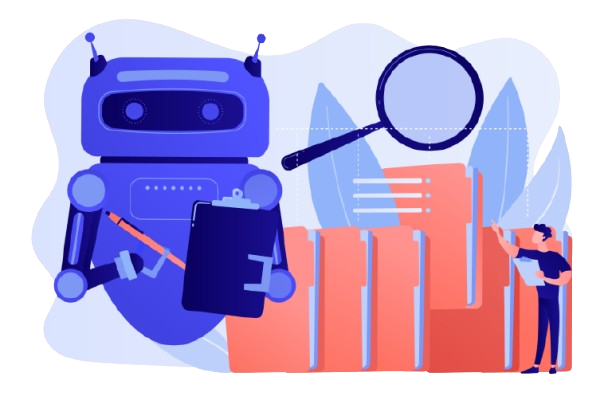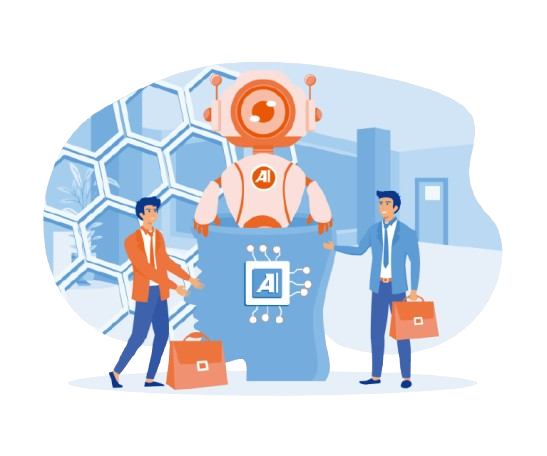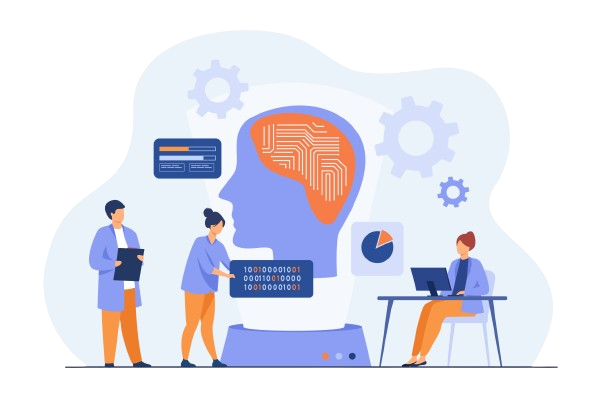-
ProductHRTimesheetLearning Management System
Artificial Intelligence (AI) is revolutionizing industries and societies across the globe. In the Middle East, governments and businesses are embracing AI-driven transformation, leveraging technology to enhance economic growth, streamline workforce management, and drive innovation.
With AI investments reaching billions of dollars, nations like the UAE and Saudi Arabia are emerging as regional and global leaders in AI adoption. This guide delves into the rise of AI in the Middle East, examining its impact on industries, human resources, challenges, and prospects.
“Some people call this artificial intelligence, but the reality is this technology will enhance us. So instead of artificial intelligence, I think we’ll augment our intelligence.”
– Ginni Rometty Tweet

Artificial Intelligence (AI) is becoming a key player in the Middle East, with nations like Saudi Arabia and the UAE leading the charge in embracing its transformative power. This shift is not only reshaping industries but also revolutionizing hiring practices across the region. The region’s commitment to AI promises to enhance various sectors, offering a glimpse of its potential to redefine industries and societies.
As AI adoption accelerates, it’s essential to assess its implications on the Middle East, particularly in areas like hiring, business practices, and future development. This article takes a closer look at AI’s role in shaping the region, identifying the opportunities and challenges in implementing this game-changing technology.

In recent years, the Middle East has emerged as a major hub for technological innovation, with artificial intelligence (AI) and automation driving significant transformations across multiple sectors. The AI market in the region, including the Middle East and North Africa (MENA), is projected to grow substantially, from $500 million in 2020 to an estimated $8.4 billion by 2026, according to a report by Research and Markets. This surge in growth reflects a compound annual growth rate (CAGR) of 47.8%, with Saudi Arabia and the UAE leading the way in this digital revolution.
In particular, the UAE’s AI market is forecast to reach an impressive $1.9 billion by 2026, reflecting a strong growth rate of 36.2%. These rapid advancements in technology are not only reshaping the region’s economy but also reinforcing its global position as a key player in AI innovation and application.
AI helps automate time-consuming tasks like resume screening, interview scheduling, and onboarding. This allows HR professionals to shift their focus to more strategic roles that require human interaction.
By streamlining mundane tasks, AI makes HR processes faster and more efficient, resulting in increased productivity.
AI’s ability to personalize candidate communication, automate feedback, and even schedule interviews more efficiently has greatly improved the candidate experience.
It removes biases from the recruitment process, ensuring that all applicants are treated fairly and equally.

AI and automation have notably transformed recruitment and talent acquisition. Previously, HR professionals spent significant time reviewing resumes and conducting initial interviews to identify suitable candidates. With the introduction of AI-powered applicant tracking systems, these processes have become more efficient. AI algorithms can quickly analyze large amounts of candidate data, matching skills and experiences with job requirements, which not only speeds up hiring but also improves the accuracy of candidate selection.
AI-driven recruitment platforms are gaining popularity in the Middle East for their ability to intelligently match job descriptions with candidates’ profiles, reducing the time-to-hire and improving hire quality. These platforms use advanced algorithms to assess candidates’ qualifications and predict their success in a role. Additionally, AI chatbots assist in engaging with candidates, answering their questions, scheduling interviews, enhancing the overall candidate experience.
AI’s role in hiring is still evolving in the Middle East, but several key trends are already taking shape:

Dubai’s Centennial Plan 2071 outlines the city’s ambition to become a global innovation leader, with AI at the heart of this vision. The UAE has recognized the transformative potential of AI, with significant investments in technology and initiatives like the Dubai Artificial Intelligence Roadmap and the Dubai Future Accelerators program.
AI is already making a tangible impact in Dubai, enhancing public services like smart surveillance and healthcare, and transforming industries across the city. Dubai’s proactive efforts to promote AI have positioned it as a regional leader in AI adoption.
Qatar is strategically positioned within the MENA region to capitalize on the opportunities presented by the AI revolution, with a strong emphasis on education and talent development as key pillars for driving innovation.
In an interview with The Peninsula, Dr. Sanjay Chawla, Research Director of the Data Analytics Department at QCRI (Qatar Computing Research Institute) under Hamad Bin Khalifa University (HBKU), spoke about the impact of AI on the workforce and its potential influence on employment trends in Qatar.
Saudi Arabia shares the UAE’s enthusiasm for AI, with the Saudi government highlighting its importance for the nation’s economic future. AI could contribute an estimated $135 billion to Saudi Arabia’s economy by 2030, according to PwC, making it the largest beneficiary of AI in the Middle East.
The Kingdom’s Vision 2030 and National Transformation Program prioritize digital transformation, aiming to diversify the economy away from oil dependency. While the government’s support and domestic investment are strong, attracting more foreign investment is critical to driving AI development and bringing in expertise to upskill the local workforce.
Kuwait is gradually advancing its digital transformation efforts with a focus on diversifying its economy away from oil dependency. The Kuwait National Digital Transformation Strategy is fostering the adoption of emerging technologies—including AI—in various sectors. In HR, Kuwaiti organizations are beginning to leverage AI-powered recruitment tools and data analytics for workforce management. These systems help enhance candidate sourcing by evaluating both technical and soft skills, streamline employee data management, and support unbiased performance evaluations. As Kuwait continues to build a knowledge-based economy, increased collaboration with international tech partners is expected to further enhance the integration of AI in HR.





















All-in-one platform, offering paperless processes, multiple automations, and AI-powered tools.


